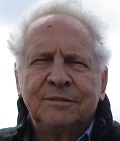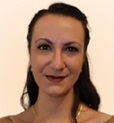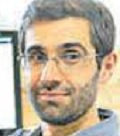 |
Vittore Casarosa graduated in Electronic Engineering at the University of Pisa and spent a few years at a research center of the Italian National Research Council, doing research on “Electronic Computers” (that center is today ISTI, the Institute for Science and Technology in Informatics). He then joined IBM, spending many years in the R&D laboratories of IBM in Italy, France and in the US, doing and managing research mostly in image processing and networking. Since 2000 he is Senior Research Associate of the Italian National Research Council at ISTI, where he is associated with the activities of the Multimedia Laboratory in the field of Digital Libraries; from 2000 to 2007 he has been Deputy Director of DELOS, the Network of Excellence on Digital Libraries. Vittore has been teaching at the University of Pisa (Department of Engineering), at the University of Parma (Department of Philosophy) and at the Open University of Bolzano (department of Computer Science). Presently he is teaching a course on Digital Libraries at the University of Pisa (department of Digital Humanities). |
 |
Michela Galli is a PhD student in Documentary, Linguistic and Literary Sciences at the University of Rome “La Sapienza”, where she also earned her Master’s degree in Archival and Library Science. Between 2019 and 2022, she worked as a librarian and archivist. In 2020-2021, supported by a scholarship, she studied and conducted research in Paris at the ENC, the EPHE, and the IRHT. Her research interests include Palaeography, Codicology, and Diplomatics, with a focus on their integration with new technologies, particularly Automatic Text Recognition (ATR) software. |
 |
Tiago Gil is Associate Professor of History of the Americas in the Department of History at University of Brasilia, Brazil and coordinator of the Digital Atlas of Portuguese America. He holds a B.A. in History from Federal University of Rio Grande do Sul (2000) and M.A. (2003) and Ph.D. (2009) in Social History from the Federal University of Rio de Janeiro. He is the author of “Infiéis transgressores: elites e contrabandistas nas fronteiras do Rio Grande e do Rio Pardo, 1760-1810” (National Archive, Brazil, 2007), which won the 2005 Research Prize of the Brazilian National Archive. He also authored “Storici e informatica: l’uso dei database (1968-2013)” (in “Memoria e ricerca”), and “Taking speed seriously: motion, simultaneity, and context in map-making for historical analysis” (in “Cartography and Geographic Information Science”), among other articles, chapters and books. His research interests are HGIS, Digital History, Economic History and databases. |
 |
Seamus Ross is a Professor in the Faculty of Information at the University of Toronto, doing researches in the domains of digital curation/preservation, knowledge representation and reasoning, and automated genre classification. He served as Dean of the Faculty of Information from 2009 through 2015, Interim Director of the Marshall McLuhan Centre for Culture and Technology in 2015 and 2016, and Visiting Professor at the Athens University of Economics and Business (AUEB) in 2016 and 2017. Before joining Toronto, he was Professor and Founding Director of the Humanities Advanced Technology and Information Institute (HATII) (now Information Studies) at the University of Glasgow from 1997 through 2008 and Associate Director of the Digital Curation Centre in the U.K. (2004-2009). During his time at Glasgow his research benefitted from substantial funding from, among other funders, the European Commission for such projects as ERPANET (2001-2004), Digital Preservation Europe (DPE) (2006-2009), and Blogforever (2011 – 2013). His involvement with research into AI for knowledge representation began in the 1980s during his doctoral investigations in Archaeology at Oxford. It entailed an exploration into the application of knowledge-based systems for representing information and facilitating reasoning processes in the context of archaeological artifacts. During the past four years he has annually taught a graduate course on Human Values in Data Science which focus on investigating the moral and ethical challenges raised by AI and in particular machine learning (ML) in contemporary society. Since April 2023 he has been collaborating with colleagues at Toronto on a research project centred on “Writing For, Writing With, and Writing About AI” under the University of Toronto’s 2023 LEAF+ funding program on Generative AI in Teaching and Learning. |
 |
Roberto Rosselli Del Turco is an Associate Professor at the Università degli studi di Torino, Dipartimento di Studi Umanistici, where he teaches Germanic Philology, Old English language and literature, and Digital Philology. He has published widely in the Digital Humanities and Anglo-Saxon fields of study. He is the editor of the Digital Vercelli Book, an ongoing project that aims at providing a full edition of this important manuscript (manuscript facsimile and selected texts available at http://www.collane.unito.it/oa/items/show/11). He is also co-director of the Visionary Cross project (http://vcg.isti.cnr.it/activities/visionarycross/), an international project aiming at producing an advanced multimedia edition of key Anglo-Saxon texts and monuments (beta version of the Ruthwell Cross: http://vcg.isti.cnr.it/cross/). He is the creator and project lead of Edition Visualization Technology (EVT), a software tool created at the University of Pisa to navigate and visualize digital editions based on the TEI XML encoding standard (http://evt.labcd.unipi.it/). |
 |
Enrica Salvatori is Associated Professor in the Department of Civilization and Knowledge of at the University of Pisa, where she teaches Medieval History, History of Late Ancient and Medieval Settlements and Digital Public History. Vice President of the degree course in Informatica Umanistica (Digital Humanities) at the same University from 2006 to 2010; Visiting Professor at the University P. Valéry (Montpellier, France) in 2006, 2008, 2011 and 2015; from 2015 to 2021 Director of the Laboratorio di Cultura Digitale (LabCD, Digital Culture Laboratory – http://labcd.humnet.unipi.it/) and now scientific manager of the Multimedial Service of the University of Pisa. Previously in the board of AIUCD (Italian Association of Digital Culture; 2015-2021), she is now in the board of AIPH (Italian Association of Public History 2017-..) and of PHW (Public History Weekly). Her research interests are focused on Medieval History and Digital Humanities, in mutual connection. Much of his work has been on the medieval Mediterranean circulation, the evolution of the municipality in Italy and Provence and the history of Lunigiana (northern Tuscany), as well as the study of the Digital Public History as a discipline. In particular, she has led since 2011 a research team on the history and archeology of the landscape in Val di Vara and Lunigiana (http://tramonti.labcd.unipi.it/) and since 2014 the digital edition of the Pelavicino Code (http://pelavicino.labcd.unipi.it/), structured as a Digital Public History project. |
 |
Rachele Sprugnoli obtained her bachelor’s and master’s degrees in Humanities Computing at the University of Pisa and her PhD in Information Technology at the University of Trento. She worked at Fondazione Bruno Kessler in Trento, at the Catholic University of the Sacred Heart in Milan and at the University of Parma. Her research is mainly focused on linguistic annotation, evaluation of NLP tools and on how computational methods can be applied to the treatment of historical texts, in Italian, Latin and English. She is also publicity co-chair of AILC (the Italian association of Computational Linguistics). |

